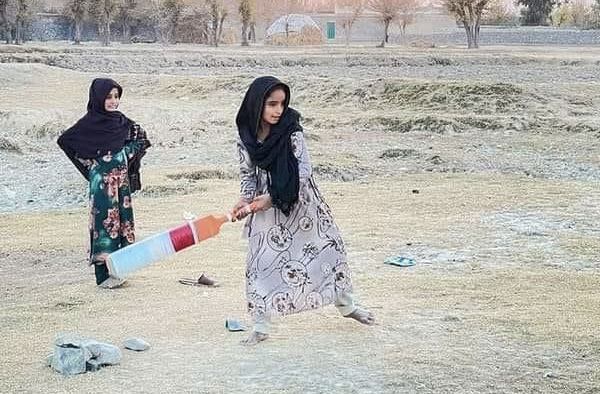The journey of Afghanistan’s women cricketers is one of remarkable courage and defiance in the face of oppression. Once a growing symbol of hope and progress, their aspirations were shattered when the Taliban regained control on August 15, 2021.
In the wake of this political upheaval, Afghan women saw their rights stripped away, with education banned, homes raided, and athletes forced to destroy their kits to avoid detection.

This was not the first time women’s freedoms had been suppressed under Taliban rule. During their earlier regime from 1996 to 2001, similar restrictions were imposed. The Taliban’s removal from power had briefly allowed advancements, including the lifting of a cricket ban in 2000, which paved the way for the development of women’s cricket in Afghanistan.
A Voice Amid the Silence
Amidst these challenges, Firooza Amiri, an Afghan cricketer now living in Australia, has emerged as a strong voice for her team. She expressed gratitude for Cricket Australia’s unwavering support while criticizing the International Cricket Council’s (ICC) lack of action.
“Cricket Australia have done more for us than the ICC have,” Amiri told BBC Test Match Special during the Women’s Ashes in Melbourne. “
They have always pushed to keep hope alive for us. We’ve sent many messages asking for help because we’ve sacrificed so much to be here.”
Amiri and her teammates initially sought permission to play as a refugee team, but their request was denied by the ICC. They are now preparing for an exhibition match against a Cricket Without Borders XI ahead of the Women’s Ashes Test in Melbourne on January 30.
Rise and Fall of Afghanistan’s Women’s Cricket Team
In 2020, Afghanistan awarded central contracts to 25 women cricketers and featured them prominently in national campaigns. However, their progress was abruptly halted in 2021 when the Taliban regained power.
These players were forced to flee to Pakistan, seeking refuge from the oppressive regime. Many later secured emergency visas to Australia, where they have worked to rebuild their lives and cricketing careers.
Despite their resilience, the team has faced abandonment from the Afghanistan Cricket Board (ACB) and a lack of support from the ICC. Payments were abruptly stopped, and repeated calls for assistance went unanswered, leaving the players in a state of uncertainty.
Silence and Inaction Spark Global Debate
While Afghan women cricketers have fought to keep their dreams alive, their male counterparts have remained silent, refraining from voicing support for the women’s team. This lack of solidarity has drawn international criticism.
The England and Wales Cricket Board (ECB) has urged the ICC to take decisive action, including withholding funding for Afghanistan until women’s cricket is reinstated. Pressure has also mounted on England’s men’s team to boycott their Champions Trophy fixture against Afghanistan, scheduled for February 26 in Lahore.
The Message of Hope
For Firooza Amiri, cricket is more than just a game; it is a symbol of resistance and hope for the oppressed women of Afghanistan.
“Cricket can break boundaries, so we want to keep hopes alive—we want to play and educate,” she said.
While the ICC claims to be engaging with the issue, Amiri argues that more needs to be done. “We expected the ICC to do much more for us, but they did nothing, and we haven’t heard from them since we have been here.”
A Dream Beyond Boundaries
The Afghan women cricketers aspire to play alongside their male counterparts but remain focused on gaining recognition as a legitimate national side. Amiri, who dreams of becoming Afghanistan’s first female cricket commentator, remains hopeful despite the setbacks.
“There is one cricket ground in Afghanistan. The men’s team came from nothing; they fought hard to be where they are today,” she said. “I’m proud, but for us, it is heartbreaking. It all comes down to the ICC—they have to recognize us as a team because we have a right to play too.”
As debates continue, the Afghan women’s cricket team fights for visibility, rights, and respect. Their indomitable spirit is a testament to their determination, highlighting the urgent need for action from international cricket authorities and the global community at large.
(Quotes sourced from BBC)

Loves all things female cricket
